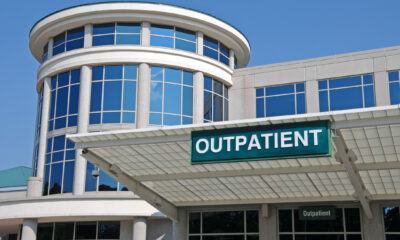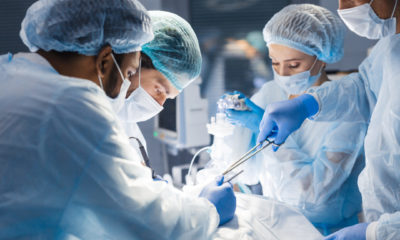Access your own patient portal, provided by NCSH.
General Medical News
Signs of Infection After Surgery
Mon, Aug 22, 2022

Learn More About How to Prevent and Spot New Infections After Surgery
One of the biggest concerns for doctors, nurses, and patients after surgery is post-op infection. Any recent wound is subject to infection, and infections can range anywhere from small skin irritations to life-threatening tissue damage. Read below to learn from the experts at North Carolina Specialty Hospital on how to best prevent infections after surgery.
Why Do Infections Happen After Surgery?

Germs are everywhere. Some are beneficial (like the bacteria in our gut that break down food) and some can be harmful (like the bacteria in our food that can make us sick if not properly cooked). Surgical site infections occur in 5-20% of surgeries when bacteria accumulate around a recent incision and enter the body. Surgical site infections trigger 7-11 more days in the hospital and can result in a 2-11 times higher risk of death. Doctors and nurses are trained on the best practices to prevent infections during surgery and during the recovery phase.
How to Spot Signs of an Infection From an Incision
After your surgery, it is normal to have a bit of pain and redness, but as the incision site heals, those symptoms should subside. Any infection in the incision site will increase those feelings of pain and redness and can get worse if left untreated.
Signs of infection usually start with redness around the incision site. The redness may grow as time goes on and come with increased pain and swelling. If this occurs, notify your care provider immediately. If left untreated, the infection can develop a white, green, or yellow discharge with a foul odor. The surgical site may separate or open, and, in severe cases, the infection will lead to a fever and serious complications.
Prevention Strategies
Pre- and post-op hygiene habits are essential for a quick recovery and infection prevention after surgery. Some of those habits include:
- Hand-washing
- Keeping the skin clean
- Clean clothing
- Proper hair removal
- Post-op wound care
- Regular gauze and bandage replacements
Although most of these responsibilities lie on the doctors and nurses providing your care, you can help by reading up on ways to prepare for your surgery and communicating any change in the look of your incision or the way you feel after surgery. It is also essential that you attend all of your post-operative doctor’s appointments so your surgeon can have a good look at your incision. Proper post-operative care will ensure that you have the best possible outcome to your surgery.
North Carolina Specialty Hospital provides a variety of surgeries for multiple specialties. Our doctors and nurses in every specialty are extremely well-trained in infection prevention and post-op care and are committed to ensuring that your surgery and recovery have the best possible outcome.
Request an appointment with a general surgery doctor today to learn more!
RELATED NEWS

Surgery Centers Are the Future — But Why?
Industry surveys make it clear that surgery centers are the future for both patients and surgeons. These studies estimate that the market will grow to as much as $55 billion by 2025. Ambulatory surgery centers…
Continue Reading

Why Choose a Specialty Hospital?
Patients have options when choosing medical facilities for receiving care. In the past, general hospitals dominated the healthcare industry, but today the choices have diversified. Patients can now choose to seek care at specialty hospitals,…
Continue Reading

Nurses Week - Surgery Partners
Nurses’ Week 2021 runs from May 6th through May 12th this year. Not only that, but the outbreak of the COVID-19 pandemic helped people across the U.S. realize the integral role nurses play in keeping…
Continue Reading
Stay Current
Educational Articles & More
View News & Press